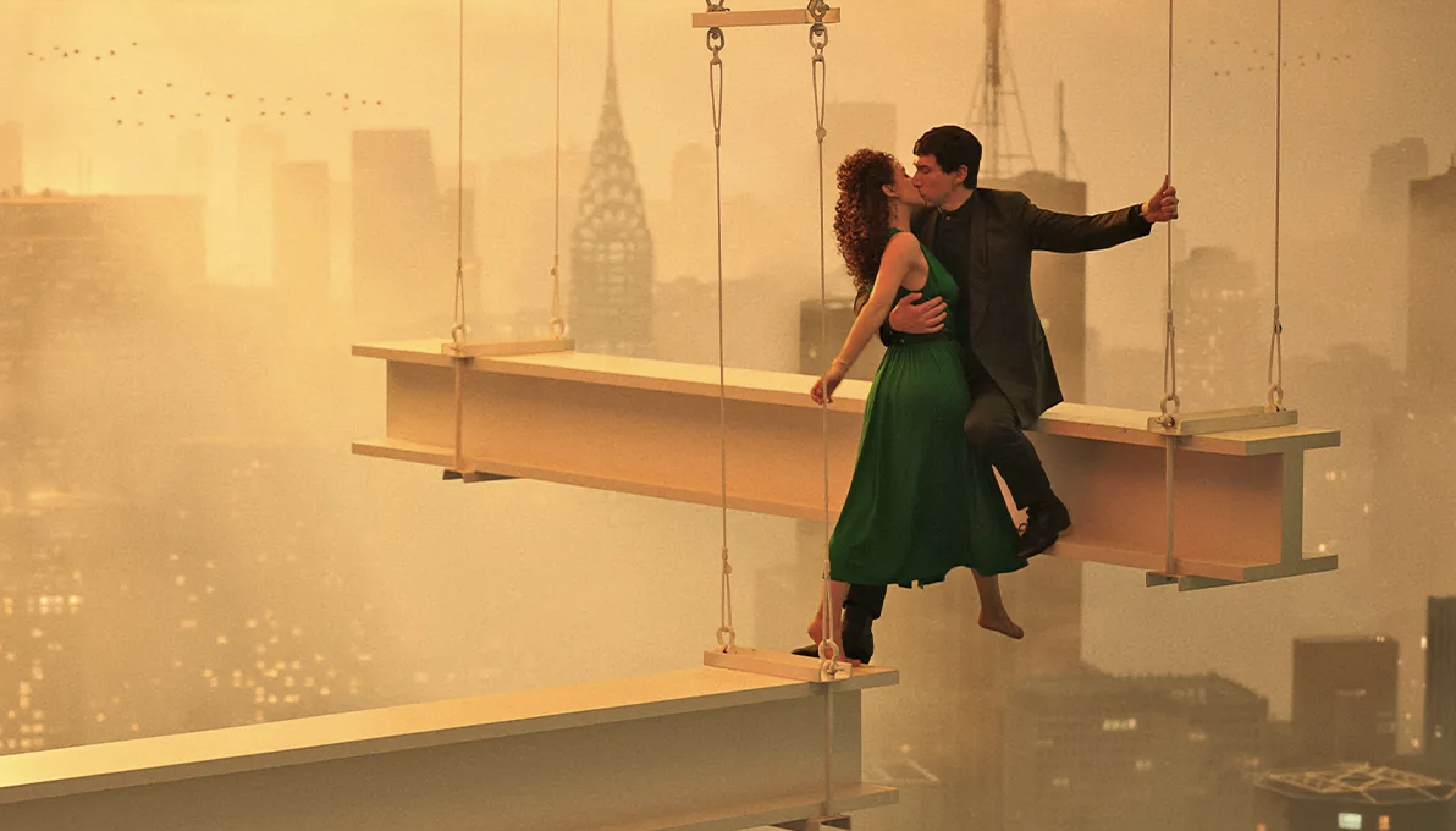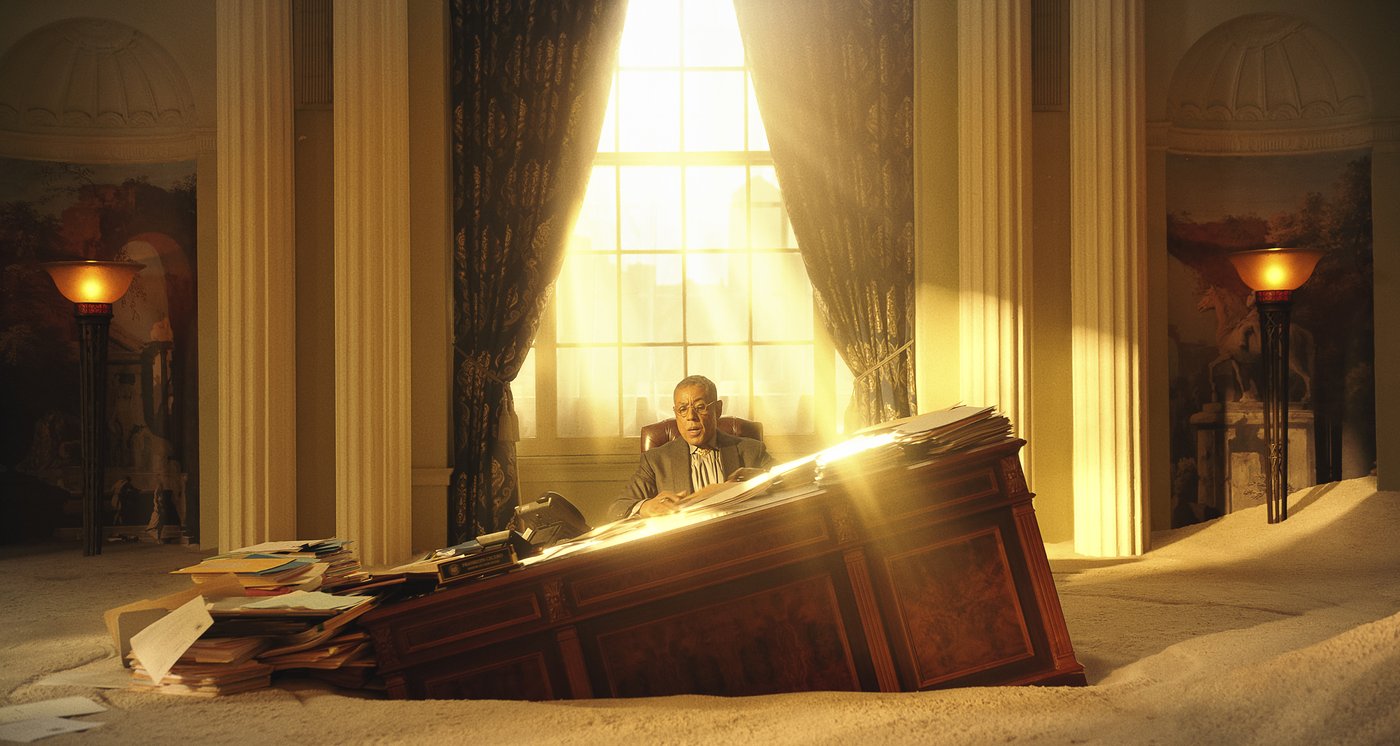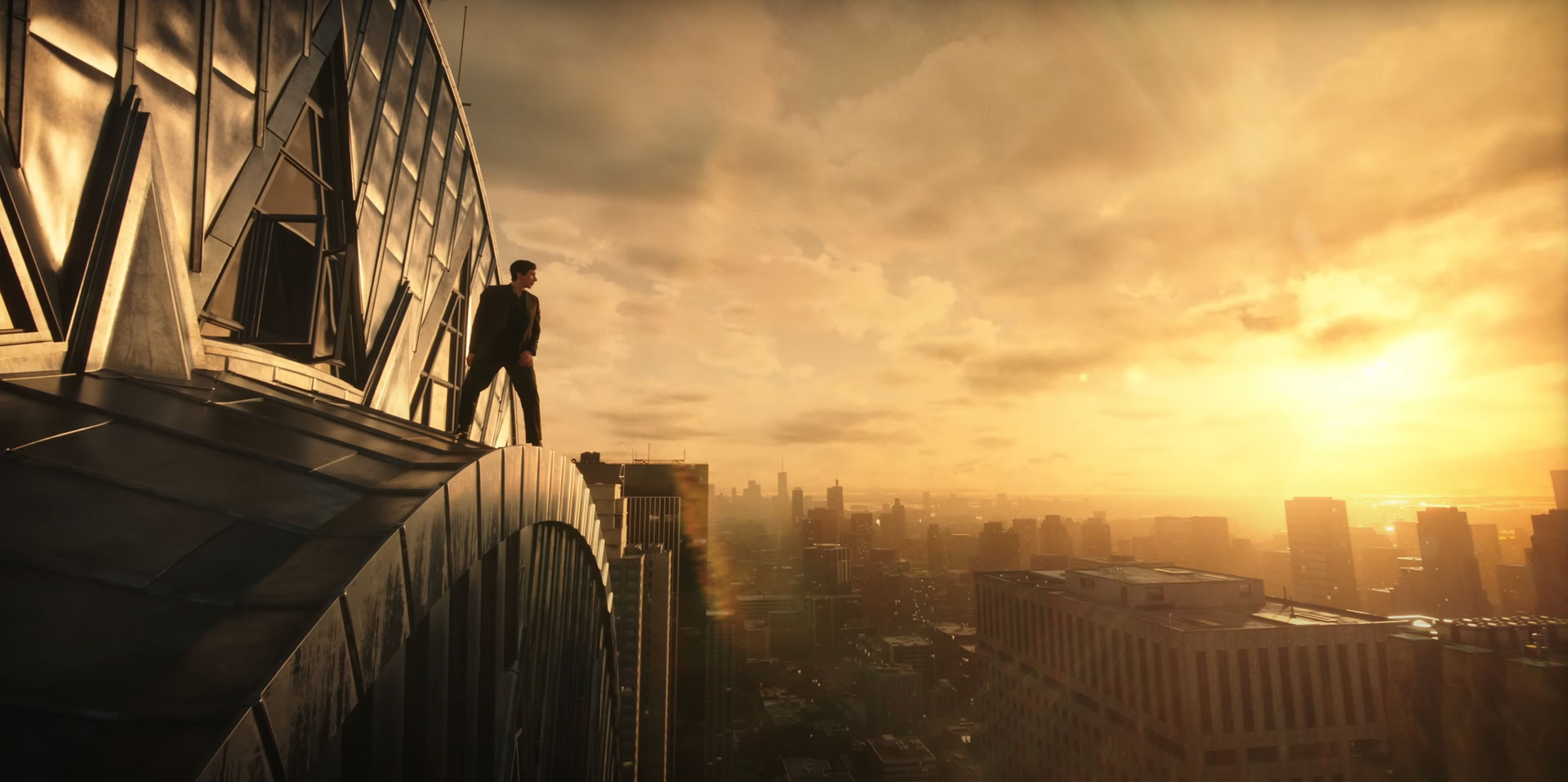Francis Ford Coppola | 2hr 18min

On the rare occasion that a film is accurately described as one-of-a-kind, the world is usually gifted with a 2001: A Space Odyssey, Eraserhead, or Persona, pushing the boundaries of cinema pushed to new frontiers. Now in 2024, Francis Ford Coppola also accomplishes something quite unique in Megalopolis, though only to the extent that a chef who throws one hundred arbitrary ingredients into a dish might claim it to be truly original. There are drafts of compelling ideas floating around here, but when it comes to developing any into a coherent storyline or motif, this bewildering, regal mess is hindered by its own fanciful digressions.
On Megalopolis’ most conceptual level, its fusion of Ancient Rome and modern America into the setting of an epic Shakespearean fable is promising, and it is no wonder that Coppola held onto it for so many decades as a passion project. This anachronistic dystopia is so chaotically debauched, one might almost believe that Federico Fellini’s spirit has possessed him with demented visions of Roman fashion shows, chariot races, and spectacular circuses, paving the way for another Satyricon. The cityscape glows a golden luminescence that delivers some astoundingly surreal sequences atop towering clockface platforms, and abstractly considers the state of urban decay through living, monolithic statues physically bearing its brunt.
Even the notion that architect Cesar Catilina possesses the ability to freeze time is set up as a fascinating metaphor for all-encompassing power, though like every other conceit that passes through Megalopolis, Coppola is quick to discard it for whatever comes next. From a sex scandal, to a cataclysmic disaster, to an assassination attempt, there is barely a set piece here that carries weight beyond the moment it unfolds, often disappearing as quickly as it emerged. The visual style is also brimming with inconsistent flourishes of split screen montages, canted angles, and spinning camerawork, but these too give the impression of rambling experimentations more than a specific, coherent vision. As for the much-promoted ‘live fourth wall break’, Coppola delivers little more than an empty gimmick, facing a movie theatre employee towards the screen for half a minute while pre-recorded dialogue gives the unconvincing illusion that they are speaking to Cesar himself.

The deeper into Megalopolis one gets, the more it becomes apparent that Coppola simply can’t figure out the right rhetoric to express the ideas he has harboured for so long. “Only two things are difficult to stare at for long: the sun and your own soul,” his characters ponder, reaching for philosophical insight via awkward soundbites that lose meaning the more one thinks about them.
It doesn’t help either that the impressive gravitas Coppola occasionally manages to summon up is drastically offset by his campy attempts at humour. Given the talent present in this cast, it is hard to believe that Adam Driver, Giancarlo Esposito, and Jon Voight all happen to be botching line deliveries of their own accord, and so we must look to the director here as the guilty party. The death of a key player in the final act is especially diminished by this tonal jumble, robbing them of the send-off they have earned in its power struggle.
For the first time in Coppola’s career, we can’t fully blame his failures on not having the resources on hand or studio compromise. Megalopolis is inimitably the work of a filmmaker whose interests have always lied in the mad ego of man, though the precision and focus that he once poured into The Godfather and Apocalypse Now is completely absent here. In its place, we get a dazzling glimpse into the mind of an artist freed from commercial constraints and cinematic convention, yet tangled in his inability to carry a single line of thought through to completion.
Megalopolis is currently available to rent or buy on Apple TV, YouTube, Google Play, and Amazon Video.



Damn, not even a Recommended. I was really hoping this would be a case of being bombed for being inaccessible rather than truly bad. Coppola must be heartbroken. Still, I’m eager to watch it and see how I feel about it.
You really think this belongs with the likes of Deadpool and Wolverine ?
Honestly giving this a Par rating has made me question my description of the grade a little. They are both weak films, but in very different ways. One is light, not particularly ambitious entertainment with a low ceiling – the other is swinging for the fences and landing some pretty big punches, but the flaws also sink it far lower.
I can understand. Pretty sure I have Gremlins significantly better graded than Babylon in a similar manner lmao. But then again, I’m not swinging for neutral, clearly defined and “objective” methodology.
Personally, I was half-expecting a messy beautiful divisive baroque spectacle à la Fellini’s Satyricon from Megalopolis. Still I think if the authorship from Coppola is apparent, which it seems to be, then it should be regarded higher than those bland superhero factory products with generic directing, at least. For the purposes of lists like these.
If it’s any consolation, both are at either extreme of the Par grade – Deadpool is edging into Sub-par territory, whereas Megalopolis is just a couple of properly developed ideas away from a Recommend. I’m hoping I find a review or analysis out there that will reveal something to appreciate on a second viewing.
I’m sure it will fall into place as you make more use of the SP grade, it’s just that right now Deadpool is the gatekeeper of cinematic dishonor and the measuring stick. You’re a more generous grader than I am in most cases, I don’t suspect you’re being too harsh. We’ll see.
Is there any sign of the auteur behind The Godfather and Apocalypse Now in this film?
I heard it is more akin to his other 21st Century work like Youth Without Youth, Tetro & Twixt. Have you seen any of these?
I’ve not seen his 21st century work, but Megalopolis very much aims to be a character study of man’s untempered ego and power like The Godfather and Apocalypse Now.
That’s a pretty broad definition. The thing with Coppola is outside The Godfather films his films doesn’t have a certain style(say Coppola Style). Mann has that, Polanski has that, Visconti has that. Antonioni has that, Argento has that. But I’m not sure with Coppola.
For Coppola it’s more his editing, particularly the intercutting when his films build to a climax. But Megalopolis doesn’t have that – I only highlight the thematic connection because that’s all there really is.
He uses a lot of flashbacks in The Rain People to tell the backstory of a character but I have never seen him do that in any of his other films. Same with the smoke used throughout in Apocalypse Now or just constant use of the dissolve edit.